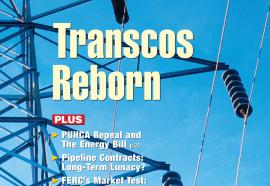Frontlines
Is the predicted crisis this winter a failure of policy, the market, or both?
Given the free market in natural gas, why haven't prices attracted the needed infrastructure or supply? (LNG imports are actually down from last year.) What policies could have been contemplated ahead of national legislation? Or put more simply, why has supply lagged demand?










